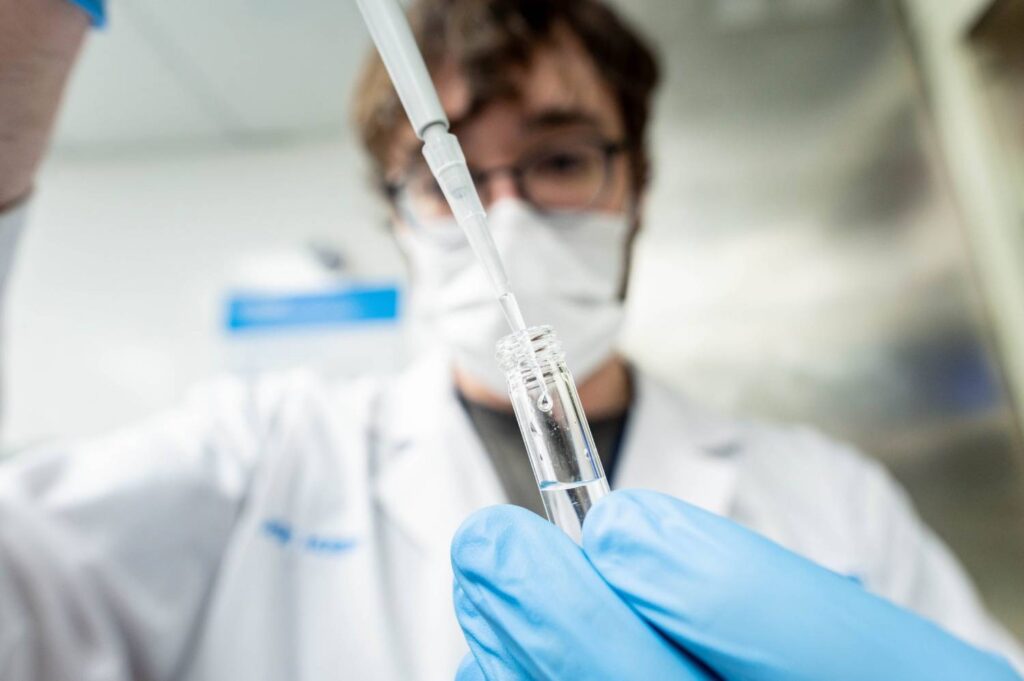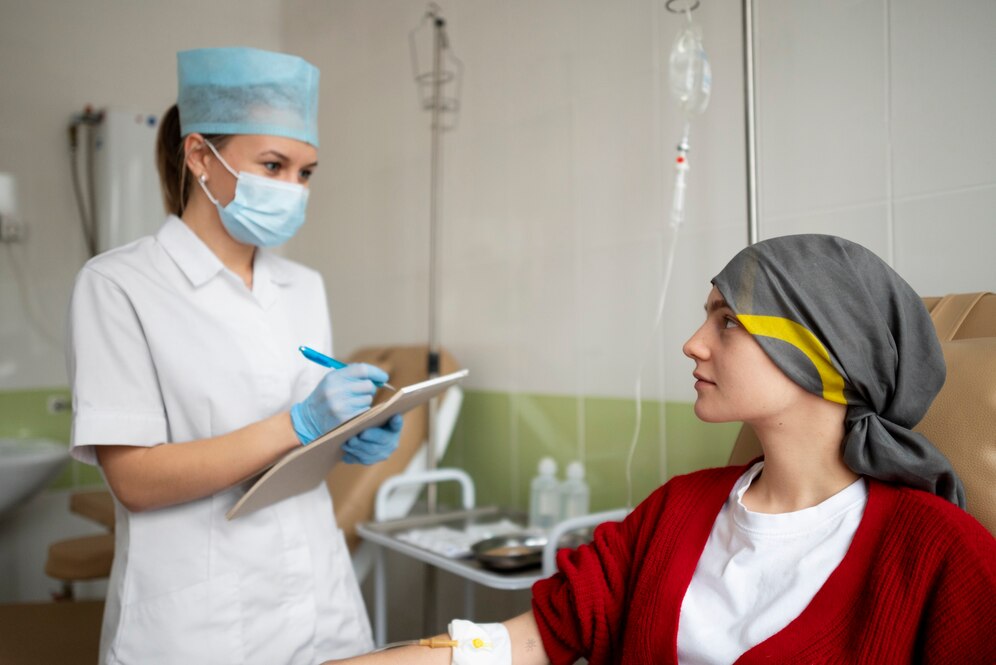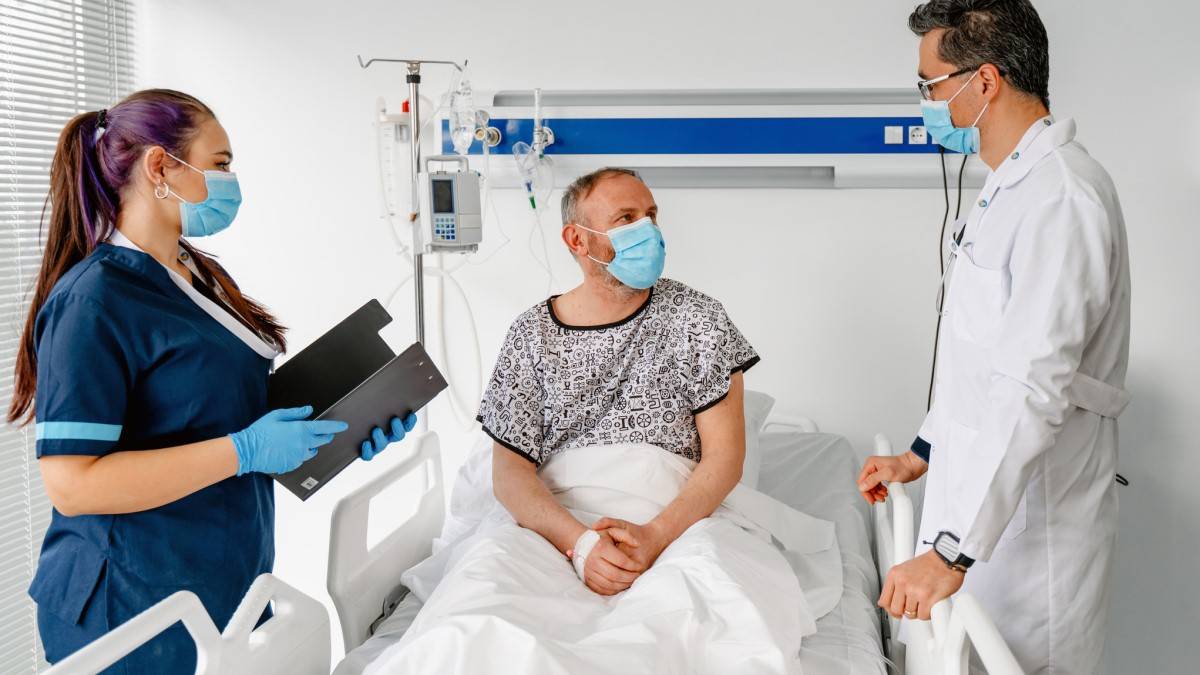The Science Blog

The Quest for the Universal Cancer Cure
Cancer remains one of the most formidable challenges in modern medicine. Despite major progress in treatment methods, finding a universal cancer cure remains a top goal for researchers everywhere. This blog explores cancer treatment, the hope of personalised medicine, and how biotechnology is changing the battle against this serious disease.
Cancer isn’t just one disease; it’s a group of related diseases. It’s defined by the uncontrolled growth of abnormal cells. This complexity poses a significant challenge in developing a universal treatment. However, the convergence of personalised medicine and cutting-edge biotechnology offers new hope.
In this article, we will look at cancer treatment today. We will also discuss personalised medicine and how biotechnology is leading to better therapies.
Key Benefits / Why It Matters

The Complexity of Cancer Treatment
The fight against cancer is not just about eradicating tumours. It involves understanding the disease’s underlying mechanisms. Traditional cancer treatments like chemotherapy and radiation can cause serious side effects. They also don’t always work. This is because these treatments do not discriminate between healthy and cancerous cells. That leads to collateral damage.
Personalised medicine aims to customise treatment based on each patient’s unique traits. Doctors can create better and safer treatments by learning about a patient’s tumour genes. This approach not only improves patient outcomes but also reduces the risk of recurrence.
The Promise of Personalised Medicine
Personalised medicine is a game-changer in the realm of cancer treatment. Personalized medicine targets the unique genetic profile of each patient’s cancer. This approach leads to more precise and effective treatments. This method helps patients with rare or aggressive cancers. Traditional treatments might not work for them.
Personalised medicine can help create new treatments that target specific mutations in cancer cells. This not only improves the efficacy of treatment but also minimises the risk of side effects. As a result, patients can enjoy a better quality of life during and after treatment.
The Role of Biotechnology
Biotechnology plays a crucial role in the development of personalised cancer treatments. New developments in genomics, proteomics, and bioinformatics allow us to analyze large data sets. This helps us find possible therapy targets. This has led to targeted therapies like monoclonal antibodies and small molecule inhibitors. These treatments focus on cancer cells but leave healthy tissue unharmed.
Biotechnology is also helping create immunotherapies. These treatments use the immune system to battle cancer. These therapies work really well for some cancers. Researchers are also looking into using them for other types.
Step-by-Step Guide to Understanding Personalised Cancer Treatment
Step 1: Genetic Profiling
The first step in personalised cancer treatment is genetic profiling. This involves analysing the patient’s tumour to identify specific genetic mutations or alterations. Doctors can find the best treatment by understanding the cancer’s genetic makeup.
Example: BRCA Mutations
Patients with breast cancer and BRCA mutations may benefit from PARP inhibitors. These are targeted therapies that focus on cancer cells with these mutations.
Step 2: Developing a Personalised Treatment Plan
Once the genetic profile of the tumour is established, a personalised treatment plan can be developed. This plan may use a mix of targeted therapies, immunotherapies, and standard treatments like surgery or radiation.
Case Study: Melanoma Treatment
For melanoma, a type of skin cancer, personalised treatment plans have greatly improved patient outcomes. By focusing on specific mutations like BRAF, doctors can create better treatment plans. This helps improve survival rates.
Step 3: Monitoring and Adjusting Treatment
Personalised cancer treatment is not a one-size-fits-all approach. It requires ongoing monitoring and adjustments based on the patient’s response to therapy. This might include regular imaging studies, blood tests, and other tools to check how well the treatment is working.
Example: Liquid Biopsies
Liquid biopsies involve analysing circulating tumour DNA in the blood. They are an emerging tool in personalised cancer treatment. They allow for real-time monitoring of tumour evolution and can help guide treatment decisions.
Additional Expert Tips & Common Mistakes to Avoid

Best Practices in Personalised Cancer Treatment
- Collaborative Approach: Personalized cancer treatment needs a team of experts. This includes oncologists, geneticists, pathologists, and other specialists. Collaboration among these experts is essential to developing an effective treatment plan.
- Patient Involvement: Patients should be actively involved in their treatment decisions. Teaching patients about their choices and including them in decisions can improve results and boost satisfaction.
Common Mistakes and Misconceptions
- Overreliance on Technology: Technology is key in personalised cancer treatment, but it can’t replace clinical expertise. Doctors must use their judgment and experience to interpret data and make treatment decisions.
- Ignoring the Whole Patient: Personalised cancer treatment must consider the patient’s health, lifestyle, and preferences. Focusing solely on the tumour’s genetic profile can lead to suboptimal treatment outcomes.
Advanced Insights / Expert Recommendations
The Future of Personalised Cancer Treatment
The future of personalised cancer treatment depends on new technologies and data-driven methods. AI and machine learning will change the field. They help analyse large datasets and find patterns that humans might miss.
Also, new progress in nanotechnology could help create drug-delivery systems. These systems would send treatments straight to cancer cells. This precision-targeted approach may improve efficacy while minimising toxicity and side effects.
Industry Perspectives
Oncology experts think that combining personalized medicine and biotechnology will change cancer treatment significantly. We can create better and safer treatments by focusing on each patient and using advanced technologies.
Also, partnerships between drug companies, research groups, and government agencies can speed up new treatments. More funding and teamwork are key to moving personalised therapies from the lab to the clinic.
Ethical and Social Considerations
Personalised cancer treatment offers numerous benefits. Ethical and social concerns must also be addressed. Access to advanced genetic testing and targeted therapies is not yet equitable worldwide. Many low- and middle-income countries struggle with these treatments. High costs and weak healthcare systems make it tough to implement them.
Policymakers and healthcare providers should team up. They need to make sure all patients can access personalized cancer therapies. This should happen no matter their socioeconomic status. Investing in research, subsidizing treatment costs, and expanding genetic testing can help close the gap. This way, more people can access these innovative treatments.
A New Era in Cancer Treatment
The quest for a universal cancer cure is a complex and challenging endeavour. However, the promise of personalised medicine and biotechnology offers new hope. By personalising treatment based on each patient’s cancer, we can boost outcomes and improve the quality of life for those affected by this serious disease.
We must keep exploring personalised medicine and biotechnology. Staying dedicated to research and innovation is key. By doing so, we can move closer to achieving the ultimate goal: a world free from the burden of cancer.
In conclusion, the search for a universal cancer cure isn’t done yet. But, with ongoing progress in personalised medicine and biotech, we’re making great strides forward. Let us remain hopeful and determined in our quest to conquer cancer and improve the lives of millions worldwide.









